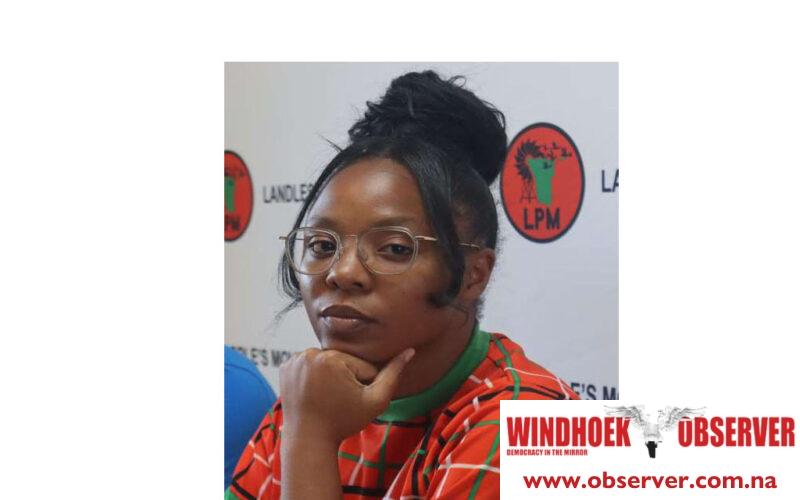Allexer Namundjembo
The Landless People’s Movement’s (LPM) youth leader, Duminga Ndala, said education is a tripartite sector, and all stakeholders should be involved in its development.
Ndala said this in an interview with the Windhoek Observer on Wednesday.
According to her, despite education being free, capable parents should still need to meet their children’s basic needs.
“We believe that education is a tripartite sector, and all stakeholders should be involved in its development. With that in mind, capable parents should be able to meet their children’s basic needs,” Ndala said.
She suggested that universities should consider implementing fee increases every two years to better align with the financial realities faced by students.
She noted that universities increase their registration fees annually, which limits self-funding students from continuing their studies if they cannot afford the higher costs.
“I believe that annual increases in registration fees can burden students and families, potentially limiting access to higher education and increasing student debt. Therefore, universities should consider implementing fee increases every two years to better align with the financial realities faced by students,” she added.
In the LPM’s manifesto, the party has pledged to reform Namibia’s educational system by integrating vocational, technical, academic, arts, sports, and recreational streams into the curriculum.
“This comprehensive approach aims to maximize the potential of every Namibian child and reduce the rate of school dropouts. We will further activate regional education forums throughout all the regions to ensure that science, technology, engineering, and mathematics (STEM) is implemented for children from an early age to equip students for careers in technology-driven sectors,” Ndala added.
Since the introduction of free education, government schools have been requiring parents to buy stationery for their children.
This has led to complaints from parents, as schools often request expensive items.
The education minister, Anna Nghipondoka, in her budget speech earlier this year, indicated that the timely provision of proper teaching and learning materials is essential for achieving desired educational outcomes.
She said the allocation per learner for stationery is N$100 for pre-primary and N$150 for other learners.
Sanet Steenkamp, the education ministry’s executive director, explained that these allocations supplement the universal grant money transferred to schools.
According to Steenkamp, the ministry budgeted N$85 562 103 for the procurement of stationery during the 2024/25 financial year.
“Regional directorates have the option to procure stationery in bulk for distribution to schools or transfer the funds to schools. The process to procure stationery for the 2025 academic year has commenced in regions,” Steenkamp said.




